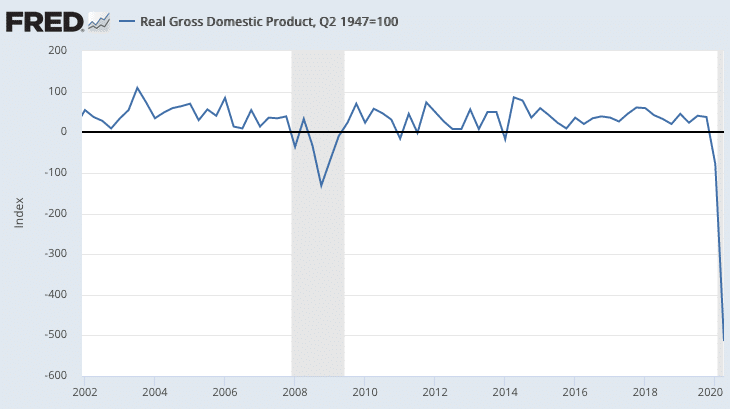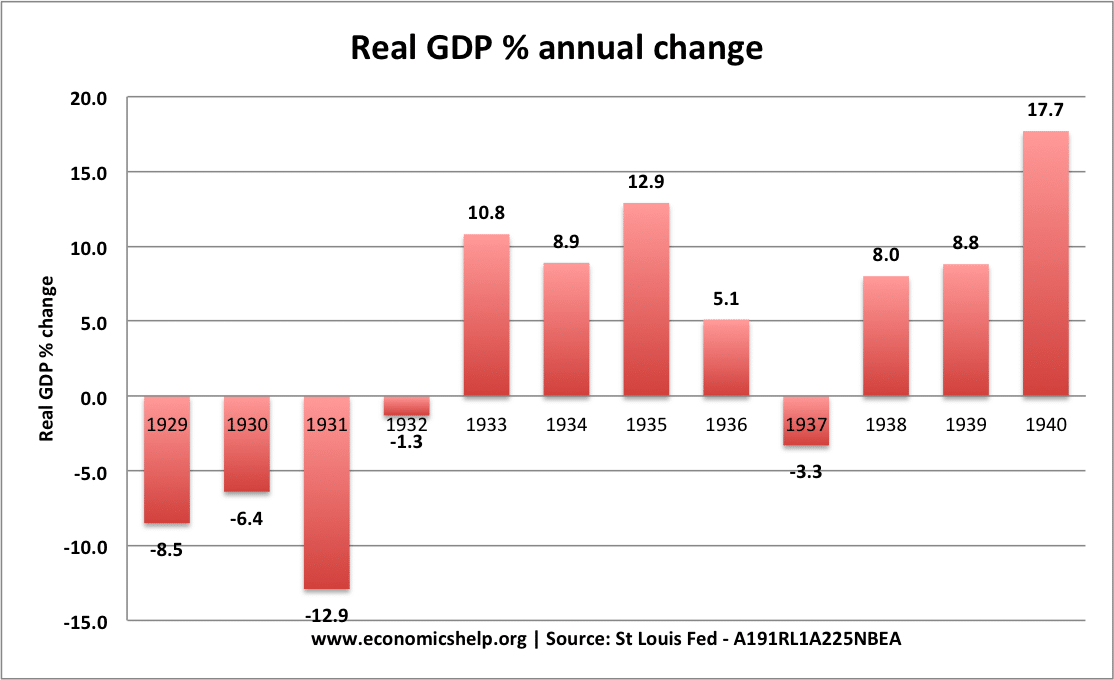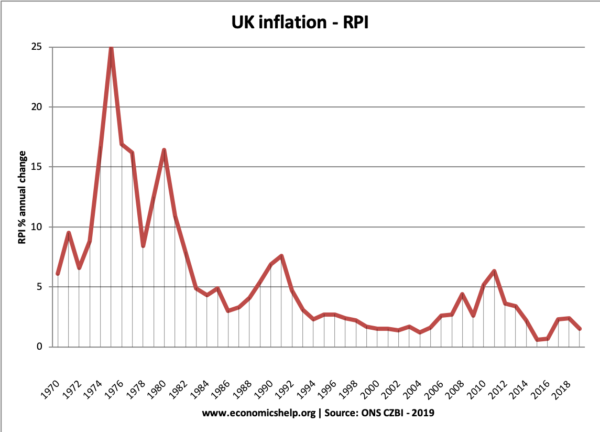Readers Question: Identify and explain economic variables that may be affected positively by the economic slowdown.
A recession is a period of negative economic growth. It is a period of higher unemployment, falling wages and higher government borrowing. It generally causes economic costs
But does anyone benefit from a recession?
Some people who may do well in a period of a slowdown in economic growth
- Firms offering cheap entertainment. It is said bookmakers and publicans do well in a recession because people like to ‘drown their sorrows’ with small gambles and getting drunk. (this may be just an old wives tale though and is contradicted by studies which show higher life-expectancy in recession.) In the 2020 Coronavirus recession, it is likely to see a rise in demand for online-streaming and online entertainment.
- Companies dealing with bankruptcies and loss of income. For example, pawnbrokers and firms selling pay day loans – People short of cash turn to loan-sharks.
- Firms selling inferior goods. (goods where demand rises when income falls) e.g. value goods, second-hand stores e.t.c. Some firms like supermarkets will not be adversely affected by the recession. Although people will cut back on luxuries, they will not cut back on food.
- Greater efficiency in long-term – It is argued by some economists that a recession can enable the economy to more productive in the long term. A recession tends to be a shock and inefficient firms may go out of business, but in recession – new firms can emerge. Joseph Schumpeter called it ‘creative destruction‘ – the idea when some businesses go bust, it allows new innovative firms to start and grow.
- It is worth pointing out that in a recession, good, efficient firms can also be forced out of business – purely because of cash shortages and a temporary drop in income. It is not the case that all firms going out of business are inefficient. Also, the loss of firms means loss of expertise and knowledge.
- Falling asset prices can make it cheaper to buy a house. Good for first-time buyers. It can help reduce wealth inequality.
- Life expectancy can rise. Studies of Great Depression show that life-expectancy rose amongst regions with an increase in unemployment. This may seem counter-intuitive, but the logic is that those who are unemployed may spend less on alcohol and drugs – leading to better health. They may make fewer car journeys and so be less likely to be involved in fatal car accidents. NPR
- Lower inflation can be good for people in fixed incomes, pensioners.
In a recession, the rate of inflation tends to fall. This is because unemployment rises moderating wage inflation. Also with falling demand, firms respond by cutting prices.
This fall in inflation can benefit those on fixed incomes or cash savings. It can also help tackle long-term inflationary pressures. For example, the 1980/81 recession helped reduce inflation from the high rates of the 1970s.
The Recession of 1991 occurred after the Lawson boom and double-digit inflation.
Efficiency increase?
It has sometimes been argued that a recession forces firms to increase efficiency or go out of business. A recession can accelerate the process of ‘creative destruction.’ Where inefficient firms go out of business but efficient firms thrive.
Covid Recession 2020

The deep recession of 2020 was caused by the Covid-19 outbreak. This recession hit some sectors very hard (leisure, travel, tourism, bingo halls). But, equally some business did very well from the Covid-recession. As consumers stopped going to the high street and shopping malls, we switched to online delivery. Sales at online giants like Amazon increased significantly. For example in the first seven months of 2020, the market capitalisation of Amazon grew $570bn as its sales grew rapidly (Forbes).
The growth in Amazon sales has not quite been matched by profitability. For example, necessary items like toilet paper are low margin products, so profit growth has been limited. At times, Amazon took unusual step of limiting demand. Also, because of Covid, they faced some higher costs in paying for overtime and dealing with need to tackle outbreaks of Covid in its warehouses. However, Amazon also saw rapid growth in its cloud computing networks, due to growth in demand for things like online streaming. These parts of the business are more profitable.
Apple, Google and Facebook also saw rapid growth in revenue and profitability in a period which favours companies with strong online presence.
The Covid recession is unusual in that more than ever there are big winners and big losers from the recession. It all depends on how the business is affected by the dynamics of the virus as much as aggregate demand.
Related articles



So what do we think the benefits are:
1. Growing in a declining market costs much less. Growing is horrifically expensive. More stock, more cash, more space, more staff. It eats money. Do it when the market is down and you can grow share with out the spend.
2. The competition became distracted. Some competitors cut back, reducing range and staff. That gave us opportunities.
3. We learnt to focus on the best customers. One of the first things to happen was poorly managed customers going bust. It has really tightened credit control and our views on who are the best people we want to work with.
4. We treat things with more respect. From forklifts in the warehouse, to the chairs and computers, people have started to feel respect for things. Everything is less disposable.
5. We learnt to look for value again. We have re-pitched all main items of expenditure, not necessarily giving the business to the cheapest, but the best.
6. We have slowed down and thought more.